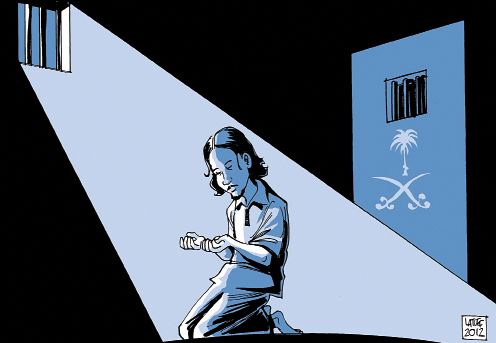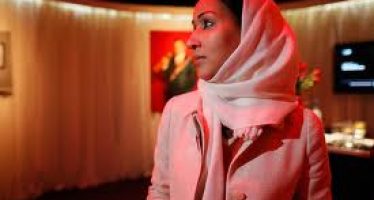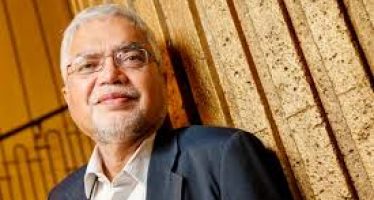Hamza Najeeb: Courageously Looking for Answers
 Who breaks a butterfly on a wheel?
Who breaks a butterfly on a wheel?
Hamza Kashgari Mohammad Najeeb is a poet in his mid-twenties. He was a columnist for al-Bilad newspaper until early 2012 when he expressed some concerns about the tenets of his inherited religion as part of a wish for more freedom of expression in his native country.
Mr Najeeb is a Saudi national but according to some of his fellow citizens not of pure enough blood because of his Turkmen family background. A Saudi cleric urged that he be tried for apostasy and a Facebook group of some 26,000 called for his execution.
A smaller group begged that all charges be dropped. In the event, Mr Najeeb was deported to Saudi Arabia by Malaysia while en route to New Zealand where he had hopes of being granted political asylum. He was jailed for almost two years for “denigrating religious beliefs.”
“Mornings of hope… souls that live and never die. Thanks to God.”
(Tweet from Hamza Najeeb upon his release from jail in Saudi Arabia 10/29/2013)
Referring to that call for execution, the Grand Mufti of Egypt said, “We don’t kill our sons. We talk to them.” Ali Gomaa’s first concern was to find out the precise wording of Mr Najeeb’s statements in order to determine if their significance: Was this a mere misconduct, an expression of doubt or even an insult?
It was indeed relevant that the young man had made an apology. The Association of British Muslims went further by saying that, “a state penalty for supposed blasphemy runs counter to the spirit of Islam. No one should suffer for expressing their opinions.” Islam is a religion of love, tolerance and peace. These are indisputable facts.
Could it be that Najeeb’s support of Arab Spring was germane to the prosecution and imprisonment of this young man? Perhaps his criticism of the Saudi Religious Police – aka the Committee for the Promotion of Virtue and the Prevention of Vice – had something to do with all this.
Hamza Kashgari Mohammad Najeeb is a perhaps reluctant hero. He deserves praise for expressing honest doubt about both religious and secular affairs and thinking out loud about possible solutions and answers. He did so at great personal risk running afoul of stern dogmatists who sadly fail to realise that most people, even the devoutly religious, have a habit of using thought processes to analyse their surroundings and find answers that aim to make the world a better place.

As to the dogmatists, more often than not, their vain and misguided attempts to protect religion from detractors but serves to foment further dissent. Faith is by its very nature a liberating experience. Theologians of whatever religion who do not grasp this simple universal concept should probably find a more fitting line of work.
You may have an interest in also reading…
Manal al-Sharif: Empowering Women with the Roar of an Engine
Ms Manal al-Sharif was filmed in the commission of a crime as she was driving down the road. In fact,
Hero Kapila: Remembering Darfur
The whistleblower that exposes misconduct in organisations is becoming more and more important to society and has a protected and
Angela Merkel: Managing Europe’s Manifest Destiny
The job of German chancellor is not one for the faint of heart. It all boils down to leading one


















































































